Millions of Aussies now can’t afford to live in Australia
Australia’s insane cost of living crisis has been laid bare as shock new maps reveal how crazy things have become for millions of Aussies.
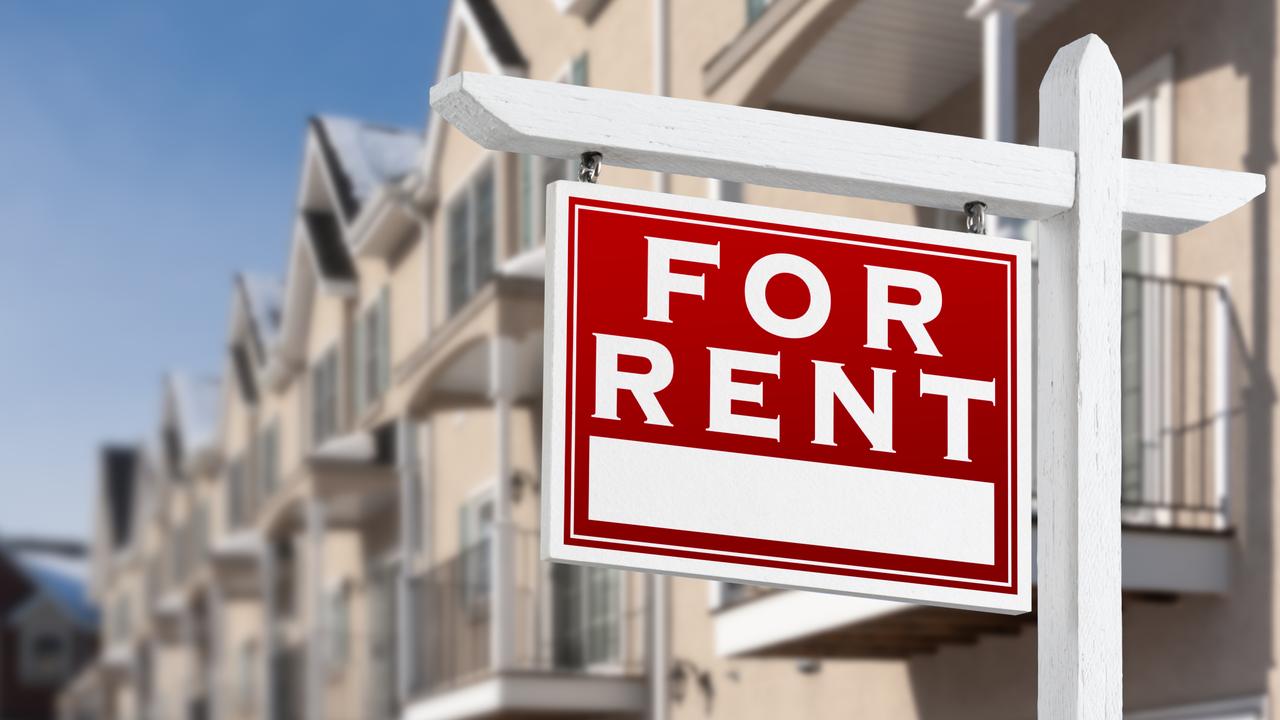
Australia’s insane rising pressures have been laid bare as shock new maps reveal how crazy things have become for millions of Aussies.
Single JobSeekers and part time workers on parenting payments have been hit hardest, with every capital city and rest of state area now severely unaffordable for them, with pensioners and single parents not far behind - finding almost everywhere unaffordable.
The 10th annual National Shelter-SGS Economics and Planning Rental Affordability Index, released Friday, warned Australia is now in dire straits with Sydney, Melbourne, Brisbane, Perth and Adelaide all recording their worst affordability scores in a decade – laying the blame squarely on a surge in investors who have been allowed to make a fortune off Australian housing needs.
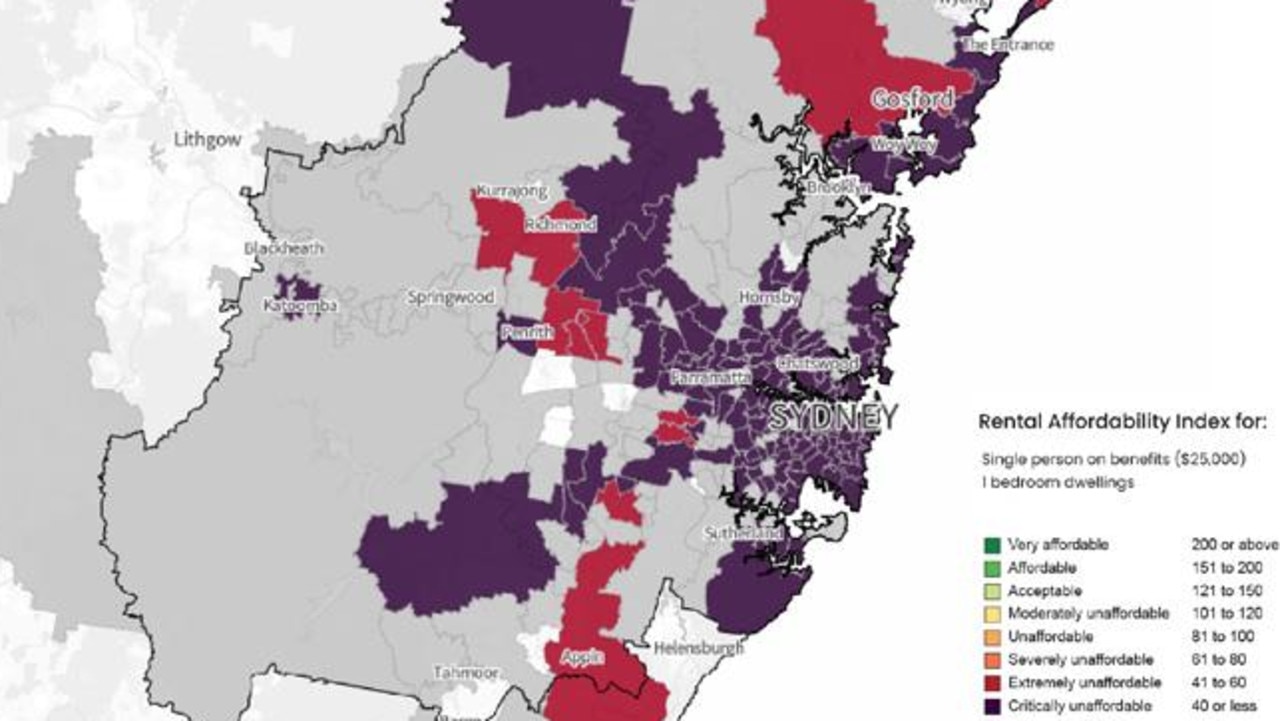
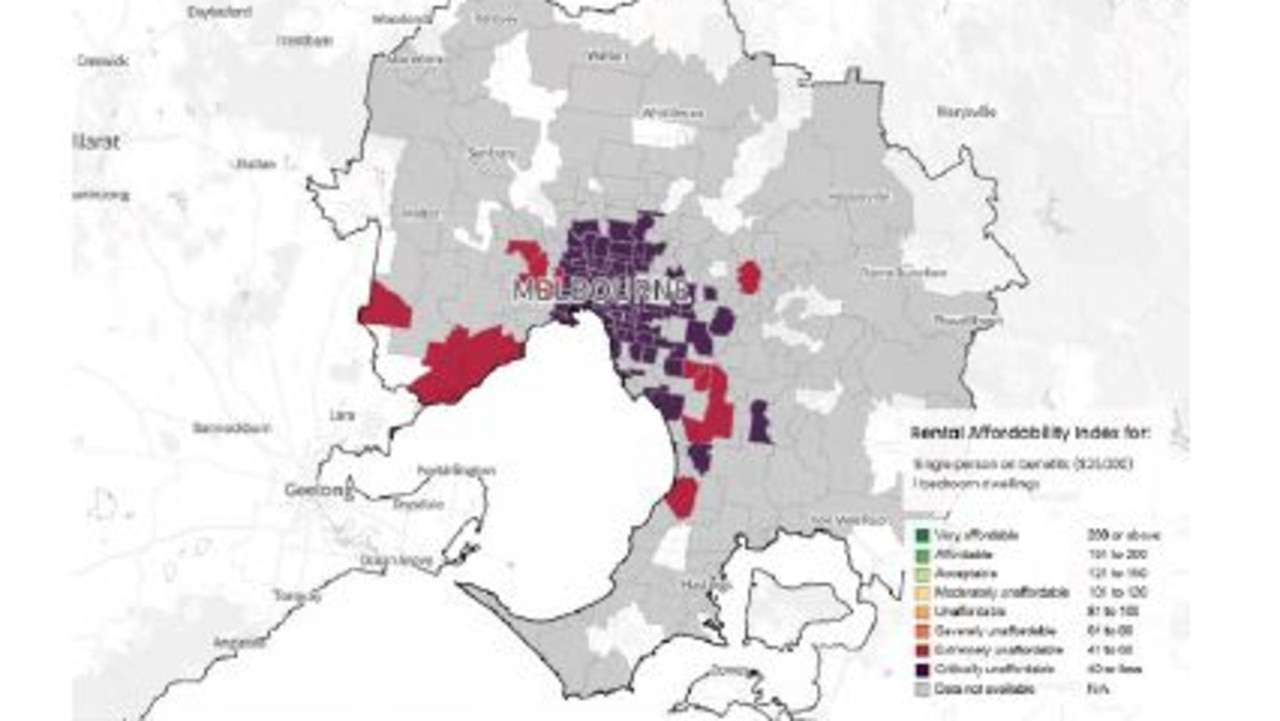
Real reason foreign buyers numbers now appear lower
‘Unfair’ bank lending policy under fire
The situation is so bad that researchers were forced to add a “critically unaffordable” category (shaded purple) this year to show places where stated households would have to pay “75 per cent of their income or more on rent”, according to SGS Economics & Planning principal Ellen Witte.
The index report warned “the introduction of the capital gains discount in 1999, combined with negative gearing, has dramatically increased the number of investors who compete with homeowners for available property, keeping more households out of home ownership and trapping them in the rental market”.
It said ”investors have pushed out would-be homeowners, so more households with middle to higher incomes are renting for longer” which pushes up rents and displaces lower-income renters even further.
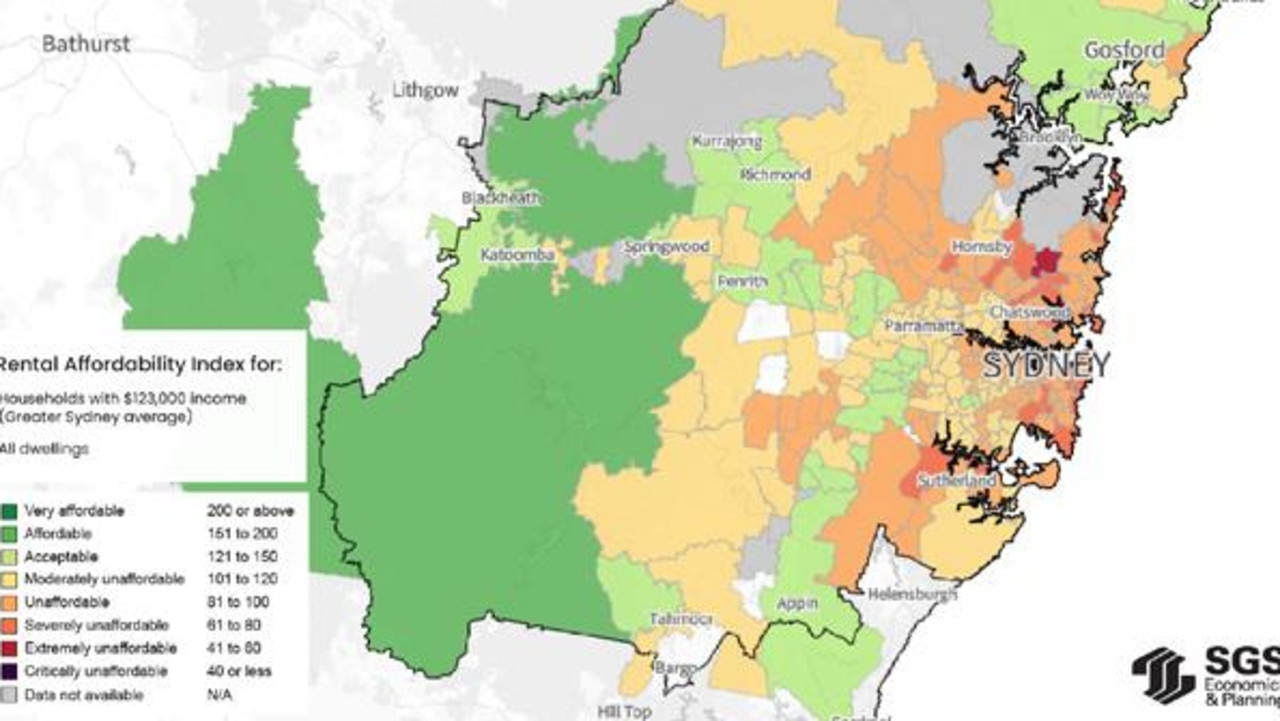
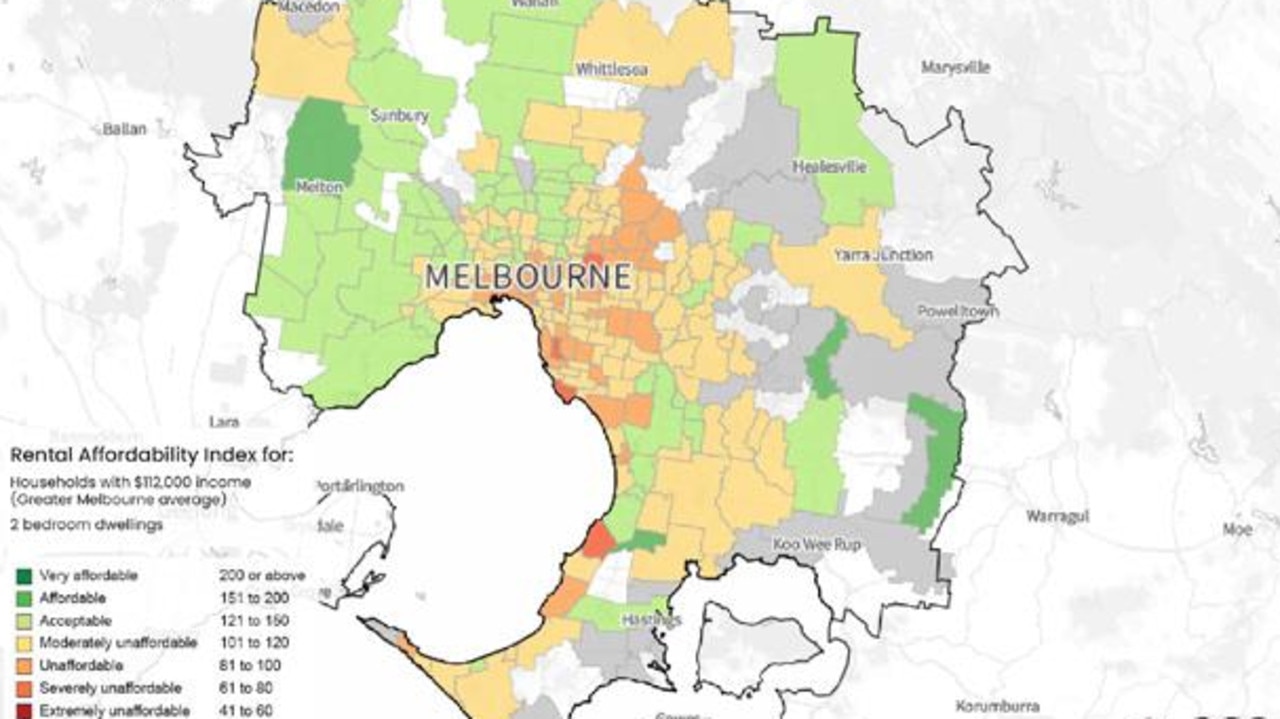
Heartbreaking fallback plan for Sally Pearson, Titmus family
Shock factor dragging home prices down 10pc
Perth is now the least affordable capital to rent in, with median rent taking up 31 per cent of mid-range income there ($629 a week), followed by Sydney’s 30 per cent ($720 a week).
Escaping to the regions is also not an option now, with regional renters finding the going the toughest it has ever been everywhere except ACT and Tasmania.
The shocking findings led to National Shelter spokesman John Engeler calling for government intervention to not just create more affordable housing but step up regulation of rental markets.
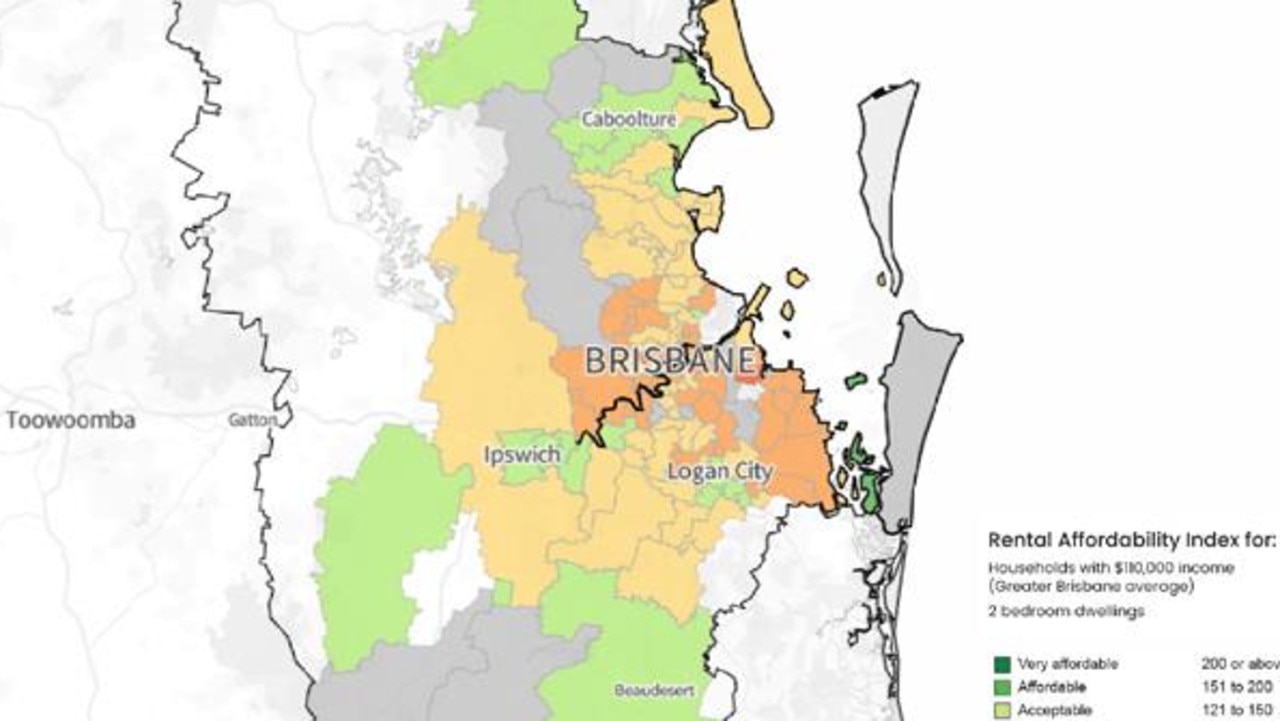
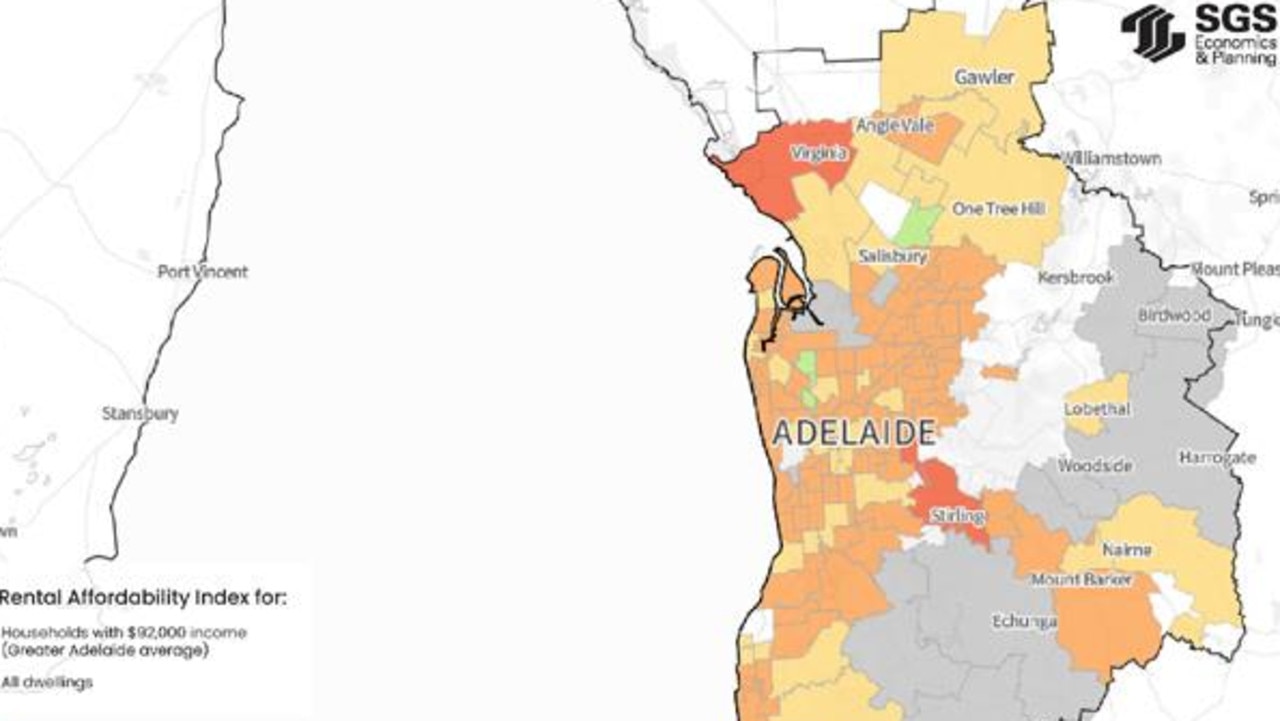
“The situation is especially serious for low-income renters who are increasingly forced to rent privately due to the declining availability of social and affordable housing,” he said.
“A single pensioner would have to spend 86 per cent of their income to rent a median one-bedroom apartment in Sydney. This is clearly unacceptable. Governments must urgently act to reverse this affordability crisis including by building more social and affordable homes and better regulating rental markets”.
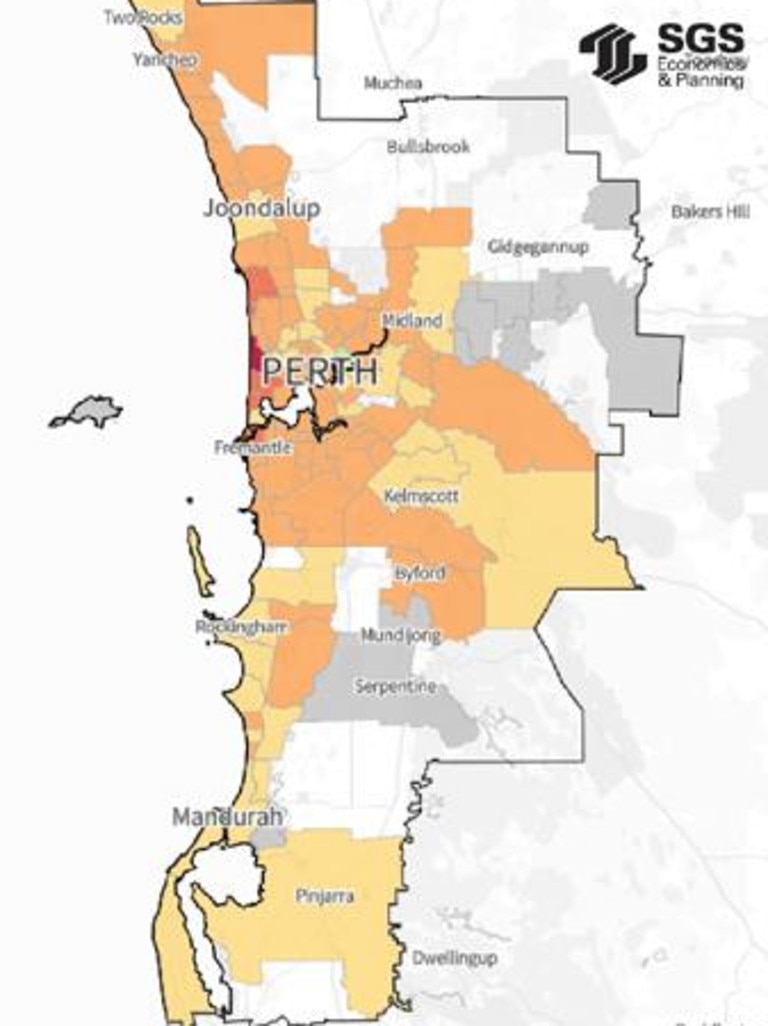
Ms Witte warned “not only are rent rises hurting households, they are also exacerbating inflation” – a major concern for the Reserve Bank.
“The ACT introduced rent increase limits in 2019, and rental affordability has improved there since. This suggests that guide rails that prevent excessive rent increases could serve a dual purpose of improving rental affordability and lowering inflation.”
“Huge swathes of Australia are now unaffordable to even median income renters. With rental affordability deteriorating this rapidly, rents are now “critically unaffordable” for pensioners, JobSeekers and some single parents.”
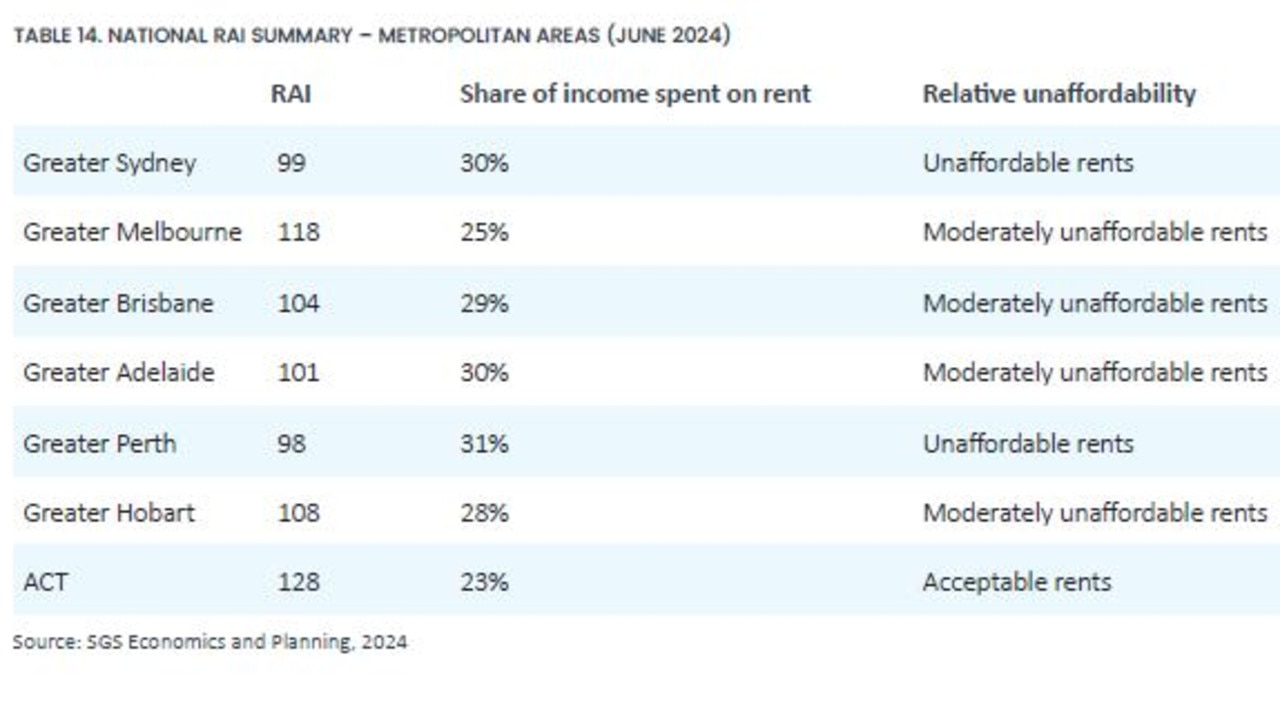
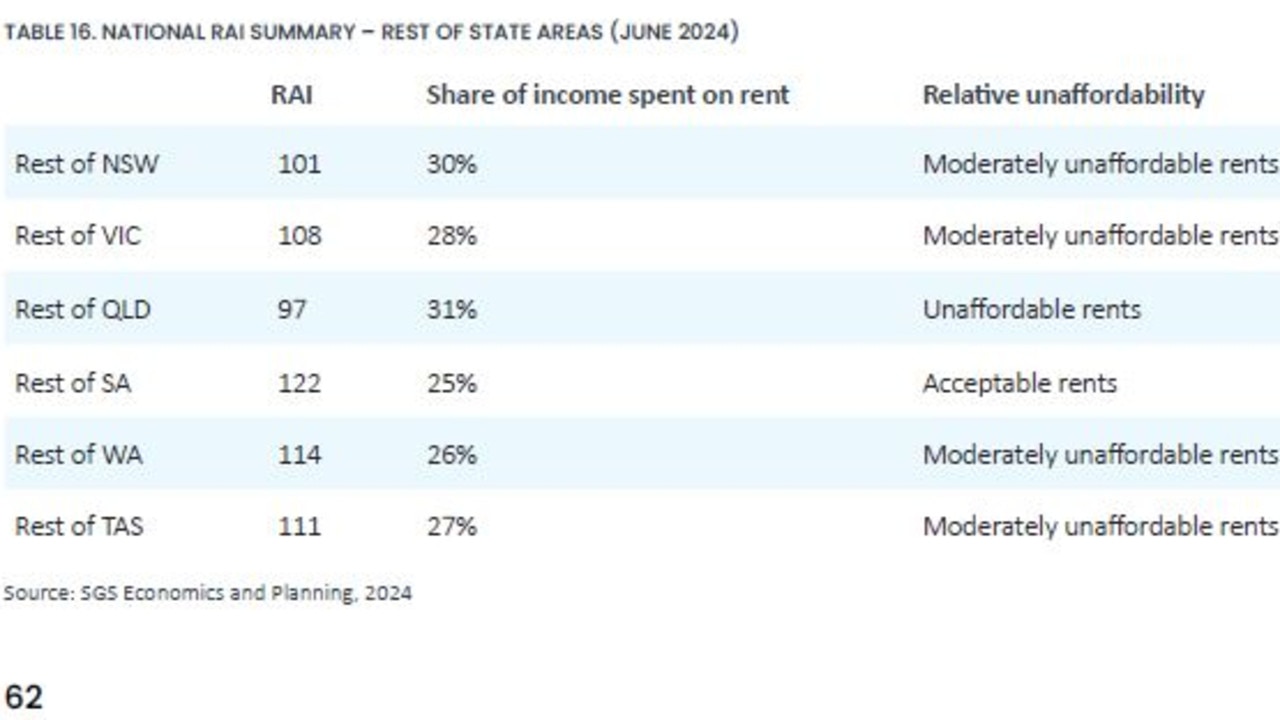
The rental affordability index scores areas based on median rental prices and average income of rental households within the capital city or rest of state area, with a 100 score indicating households spend 30 per cent of income on rent, which is the critical threshold level for housing stress.
The index was funded with the help of Beyond Bank Australia Foundation whose chief community officer Peter Rutter said it was important to “understand the cost of living pressures that people are facing and think about how we can work together to overcome them”.
Originally published as Millions of Aussies now can’t afford to live in Australia



